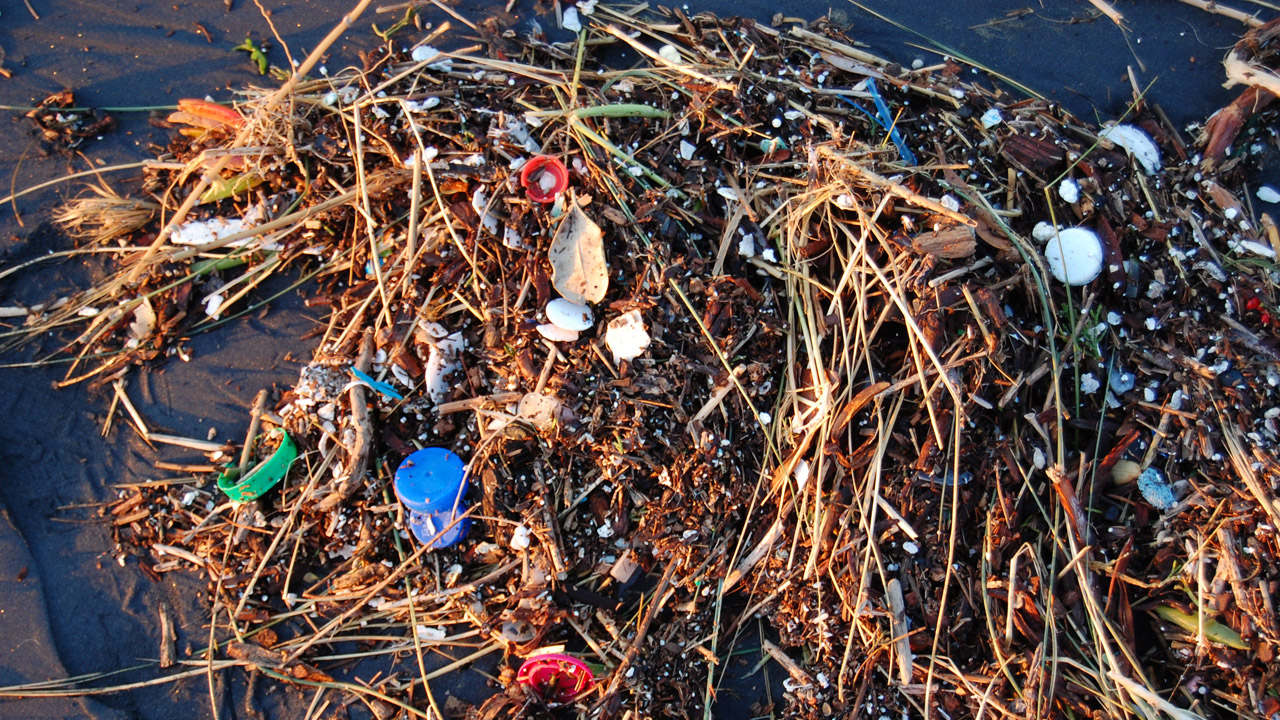You may have heard of a plastic-bag island the size of Texas floating somewhere in the Pacific Ocean. It even has a name — the “Great Pacific Garbage Patch.” What you may not know is that scientists actually don’t know what happened to the majority of plastic we know is out there. Of the millions of tons of plastic garbage polluting the ocean, scientists can only account for about 40,000 of them, according to a recent study cited by The Verge. It states:
Since the introduction of plastic materials in the 1950s, the global production of plastic has increased rapidly and will continue in the coming decades. However, the abundance and the distribution of plastic debris in the open ocean are still unknown, despite evidence of affects on organisms ranging from small invertebrates to whales.
While many floating masses of accumulated plastic waste have been located, it was “far less” than expected. Which leads to the questions. Where did the rest of it go?
Our observations of the size distribution of floating plastic debris point at important size-selective sinks removing millimeter-sized fragments of floating plastic on a large scale. This sink may involve a combination of fast nano-fragmentation of the microplastic into particles of microns or smaller, their transference to the ocean interior by food webs and ballasting processes, and processes yet to be discovered. Resolving the fate of the missing plastic debris is of fundamental importance to determine the nature and significance of the impacts of plastic pollution in the ocean.
Not only are the garbage’s toxins can be concentrating into an even more dangerous form, scientists are in agreement that animals are definitely eating plastic in the ocean. The plastic could also be missing due to being “dragged down by the weight of animal feces clinging to it or organisms growing on it, washing ashore, or breaking down even further so as to be undetectable,” oceanographer Peter Davison told The Verge. (Photo: Chris Jordan)


